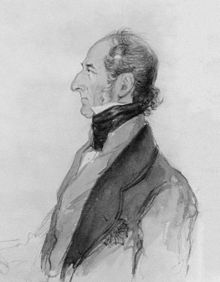Sir Mark Cubbon
| Sir Mark Cubbon | |
|---|---|
 |
|
| Born | 23 August 1775 – 23 April 1861 (aged 85) Maughold, Isle of Man |
| Died | Suez, Egypt |
| Allegiance | United Kingdom of Great Britain and Ireland |
| Service/branch | Honourable East India Company |
| Years of service | 1801–61 |
| Rank | Lieutenant-General by Brevet |
Lieutenant-General Sir Mark Cubbon KCB (23 August 1775 – 23 April 1861) was a British army officer with the East India Company who became the British Commissioner of Mysore state in 1834. During his tenure, he established a law and order system, introduced judicial and economic reforms and through action in all spheres of governance helped develop the economy of Mysore. He resigned from his office in 1860 due to ill-health and left for England for the first time since his arrival in India as a cadet in 1800. The administration of the Kingdom of Mysore under his leadership ensured that the 1857 rebellion had almost no repercussions in the region. He died in 1861 on board ship at Suez. Cubbon Road and Cubbon Park in Bangalore are named after him.
Cubbon was born at the vicarage of Maughold, Isle of Man on 23 August 1775. His father was Vicar Thomas Cubbon and his mother Margaret Wilks was the sister of Colonel Mark Wilks. The seventh of ten children, he grew up enjoying scrambling up the local hills and studied at the local Parish school before studying under the tutorship of Maddrell of Ramsey. His uncle Mark Wilks arranged for Cubbon to enroll as a cadet in India in the spring of 1802.
Cubbon arrived in India earlier than required in the summer of 1801 at Calcutta. He gained an appointment to the 2nd Madras Battalion in 1802, and moved to the 2nd Battalion 5th Native Infantry in July 1804, serving in Travancore under Col. John Chalmers. Cubbon had great admiration for the Sepoys and respected their religious views. In 1809 he received a civil appointment but the new governor of Madras, George Barlow, had passed a pledge that was unpopular among the Europeans in the Madras Army. Cubbon refused to sign the declaration and he lost his appointment during this so-called white mutiny in Madras. He was reappointed in 1810 in the Commissariat Department initially under Col. Close in central India during the Pindari War and then under Colonel Philip Meadows Taylor in Kurnool. A year later, he was then made an Assistant Commissary-General, a position well above the ranks within the army. He became a Major on 23 November 1823 and was a Lieutenant-Colonel on 22 April 1826. In 1827 he moved south to serve under the Travancore Resident as Commissary-General, succeeding William Morrison.
...
Wikipedia
